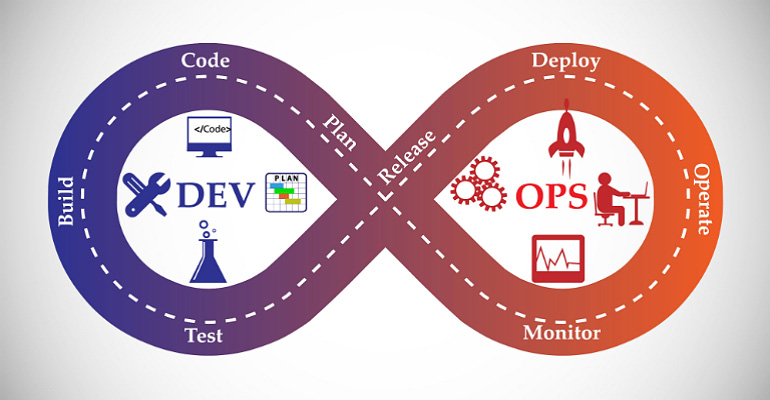What Are the Benefits of DevOps?
3 min read
Introduction
We live in a rapidly evolving technological landscape, where organizations strive to stay ahead by delivering high-quality software solutions quickly and efficiently. DevOps, a transformative approach to software development and delivery, has emerged as a powerful solution. It integrates development and operations teams and emphasizes automation and collaboration. Thus, training in the DevOps Course enables individuals and companies to accelerate their software delivery processes while maintaining high standards of quality and reliability.
This article explores the top benefits of implementing DevOps in modern enterprises.
Important Benefits of DevOps
DevOps is a fusion of “development” and “operations”. It is a culture, methodology, and set of practices aimed at improving collaboration, communication, and integration between software development and IT operations teams. Its primary objective is to automate and streamline the software delivery process, thus, enabling organizations to release high-quality software more rapidly and reliably.
Here are the top benefits of implementing DevOps:
1. Faster Time to Market
DevOps practices emphasize automation and continuous delivery. This allows organizations to release new features, updates, and fixes more frequently. By automating manual processes and fostering collaboration between development and operations teams, companies can reduce deployment times from weeks or months to hours or even minutes.
2. Increased Collaboration and Communication
DevOps promotes a culture of collaboration and communication between traditionally siloed development, operations, and quality assurance teams. By breaking down barriers and fostering cross-functional teams, DevOps encourages the sharing of knowledge, ideas, and responsibilities. This leads to faster innovation and problem-solving.
3. Improved Quality and Stability
Furthermore, by implementing practices such as continuous integration (CI) and continuous delivery (CD), DevOps ensures that code changes are tested and integrated into the main codebase frequently. This results in early detection of bugs and issues, leading to higher-quality software releases. Moreover, automated testing and deployment processes help minimize human errors and ensure greater stability of applications in production environments.
4. Enhanced Flexibility and Scalability
DevOps practices enable organizations to adapt quickly to changing market demands and scale their infrastructure as needed. It leverages cloud computing, containerization, and infrastructure as code (IaC). Moreover, the DevOps Certification is highly valued by companies, making certified DevOps professionals highly sought-after. This enables DevOps teams to provision, configure, and manage infrastructure more efficiently, allowing for greater flexibility and scalability.
5. Cost Savings
While initially requiring investment in tools, training, and cultural transformation, DevOps ultimately leads to cost savings for organizations. By automating repetitive tasks, reducing manual errors, and improving resource utilization, companies can lower operational costs and achieve higher ROI from their software development efforts.
6. Greater Customer Satisfaction
Furthermore, DevOps focuses on delivering value to customers rapidly and continuously. It releases new features and updates frequently, responds quickly to feedback, and ensures high reliability and performance of applications. This helps organizations enhance customer satisfaction and loyalty.
7. Improved Employee Satisfaction and Retention
DevOps promotes a culture of empowerment, collaboration, and continuous learning, which can lead to higher job satisfaction and employee retention. It provides opportunities for skill development, cross-functional collaboration, and ownership of projects. Thus, DevOps organizations attract and retain top talent in the industry.
8. Risk Mitigation and Compliance
In addition, DevOps practices, such as version control, automated testing, and infrastructure monitoring, help mitigate risks associated with software development and deployment. Furthermore, by automating compliance checks and incorporating security into the development process (DevSecOps), organizations can ensure regulatory compliance and reduce security vulnerabilities.
9. Better Decision Making through Data-driven Insights
DevOps encourages the use of metrics and analytics to monitor the performance of applications and infrastructure continuously. By collecting and analyzing data on build times, deployment frequency, error rates, and user feedback, organizations can make informed decisions to optimize their development and operations processes continually.
10. Cultural Transformation
Lastly, one of the most significant benefits of DevOps is the cultural transformation it brings to organizations. It breaks down silos, fosters collaboration, and promotes a mindset of continuous improvement and innovation. Thus, DevOps not only improves the software delivery process but also transforms the way teams work together towards common goals.
Conclusion
In summary, DevOps offers numerous benefits to organizations. These benefits include faster time to market, increased collaboration and communication, improved quality and stability, and enhanced flexibility and scalability. Additionally, DevOps ensures cost savings, greater customer satisfaction, improved employee satisfaction and retention, risk mitigation and compliance, better decision-making through data-driven insights, and cultural transformation. One can join the DevOps Course to learn how to use this platform and embrace DevOps principles and practices. This can help organizations gain a competitive edge in today’s fast-paced and dynamic business environment.




